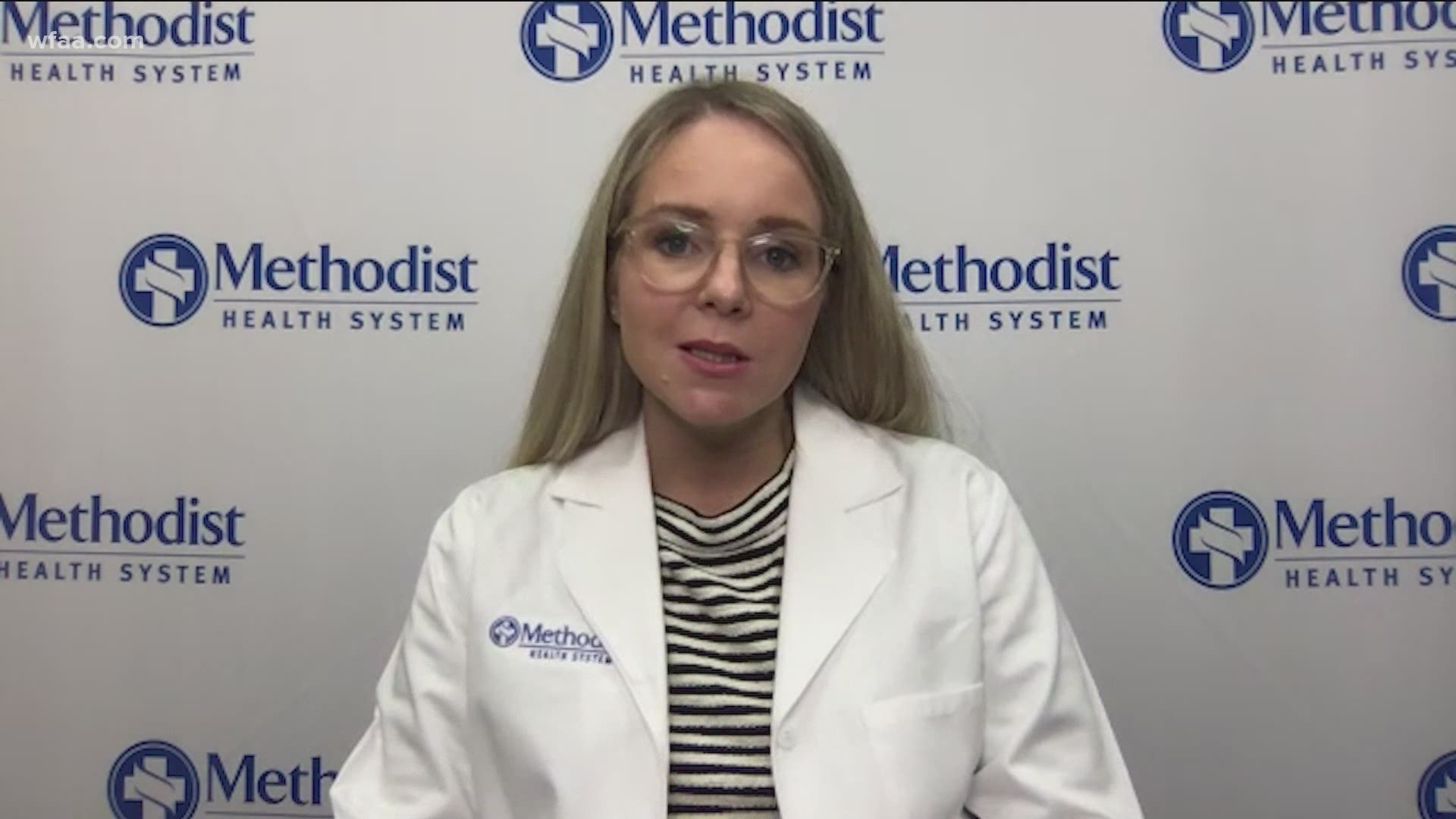The CDC lists pregnant women among those who need to take extra precautions to avoid COVID-19. That's because if they do contract the virus, they're at high risk for becoming severely ill.
At the same time, many expectant mothers are hesitant about getting a COVID-19 vaccine because there's no data yet on vaccinating pregnant women.
Carley Legan's daughter is due in April.
"It's our second," Legan said. "Our first one is a boy. He actually turned two at the beginning of December."
At 24 weeks, Carley chose to receive Pfizer's COVID-19 vaccine.
"For me personally, it was imperative that I got the vaccine," Legan said.
You see, Carley is actually Dr. Legan working on the front lines at Methodist Dallas Medical Center.
"I used to be on the COVID unit, and since I've become pregnant, I now just admit patients."
Patients, some of whom, are COVID-19 positive. That made Legan's decision to get vaccinated a little bit easier.
"There is an unknown and we don't know all of the answers because as we know the study was not done on pregnant women," Legan said. "But when you have to evaluate the risks of not getting the vaccine and contracting COVID-19...to me it's a no-brainer."
According to the CDC, pregnant women who contract COVID-19 are significantly more likely to end up in the ICU and need a ventilator compared to non-pregnant women their age.
At this point, major organizations like the Society for Maternal-Fetal Medicine (SMFM), The American College of Obstetricians and Gynecologists and the American Society for Reproductive Medicine are all on the same page.
"We'll be sorting this out for months or even years to come," said Dr. Kevin Doody, director of CARE Fertility in Bedford, Texas and member of ASRM's COVID-19 Task Force.
While there's no safety data specific to the COVID-19 vaccine and pregnancy, Doody added that the recommendation is not to restrict patients from access.
"If the patients are able to get the vaccine and want to get the vaccine... then we should not be denying them the vaccine," Doody explained.
The Society for Maternal Fetal Medicine and other leading organizations have even advocated for pregnant and breastfeeding women to be included in vaccine trials, calling it the best direct protection for the infant through passive placental antibody transfer-- before the newborn is old enough to be vaccinated. They go on to say there is no biological reason to exclude breastfeeding women from trials.
"I can't even think of a way that it would cause a problem to a baby that's breastfeeding," Doody said. "I don't think in the U.S. we're saying definitely get the vaccine. What we're saying is that there are potential ups and downs to it, have a discussion with your physician and ultimately you-- the patient-- can be the arbiter of that decision."
A decision echoing the Food & Drug Administration's public statement on the same topic in early December.
“For pregnant women and the immunocompromised at this point, it will be something that providers will need to consider on an individual basis," said Dr. Peter Marks, director of the FDA's Center for Biologics Evaluation & Research.
While the FDA is allowing women who are pregnant, breastfeeding or intending to become pregnant access to the COVID-19 vaccine, the U.K. is taking a different approach. British health authorities are recommending women wait three months after their first dose to try to get pregnant. The Royal College of Obstetricians and Gynaecologists is telling women not to get vaccinated while pregnant or breastfeeding.
"Do they have data to support those recommendations? No. I think what we have is a lack of data and different levels of precautionary principles being taken," Doody said. He added that another consideration for pregnant women in the U.S. is location.
"Right now, if you are in an area where you have a low prevalence of COVID-19, it might be perhaps a reasonable thing to wait to get vaccinated," Doody advised. "After it's been out a couple of months, I think we'll at least have some good idea as to how it works at least in terms of antibody production and things like that in pregnant women.
Legan, 31, didn't have months to make her decision.
"I am a high-risk healthcare worker who's pregnant," she said. "That is so many levels of concern in that single statement."
Concern that led her to use what she calls a gift from science to protect her gift from God.
"To me, it's an easy decision. I'm not saying I know all the right answers. The reality is this isn't 100 percent," Legan said. "At the end of the day, it's my body, it's my future child and it's my family that I'm doing this to protect."
Our interview with Legan took place 48 hours after she received the COVID-19 vaccine. We checked back in to ask how she's doing and she was experiencing no adverse effects. She plans to receive her booster shot on January 7, 2021.

